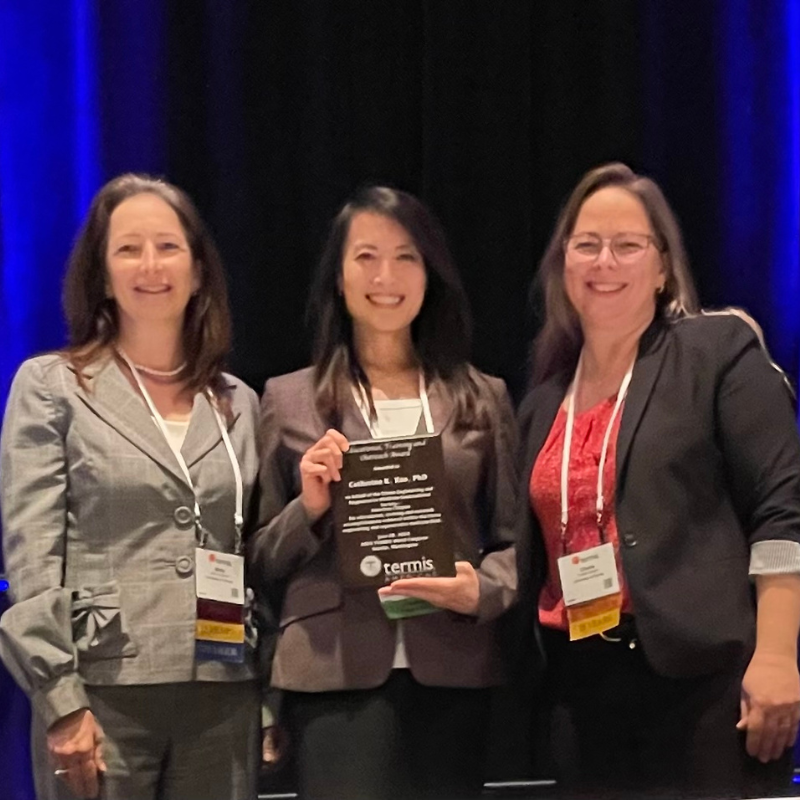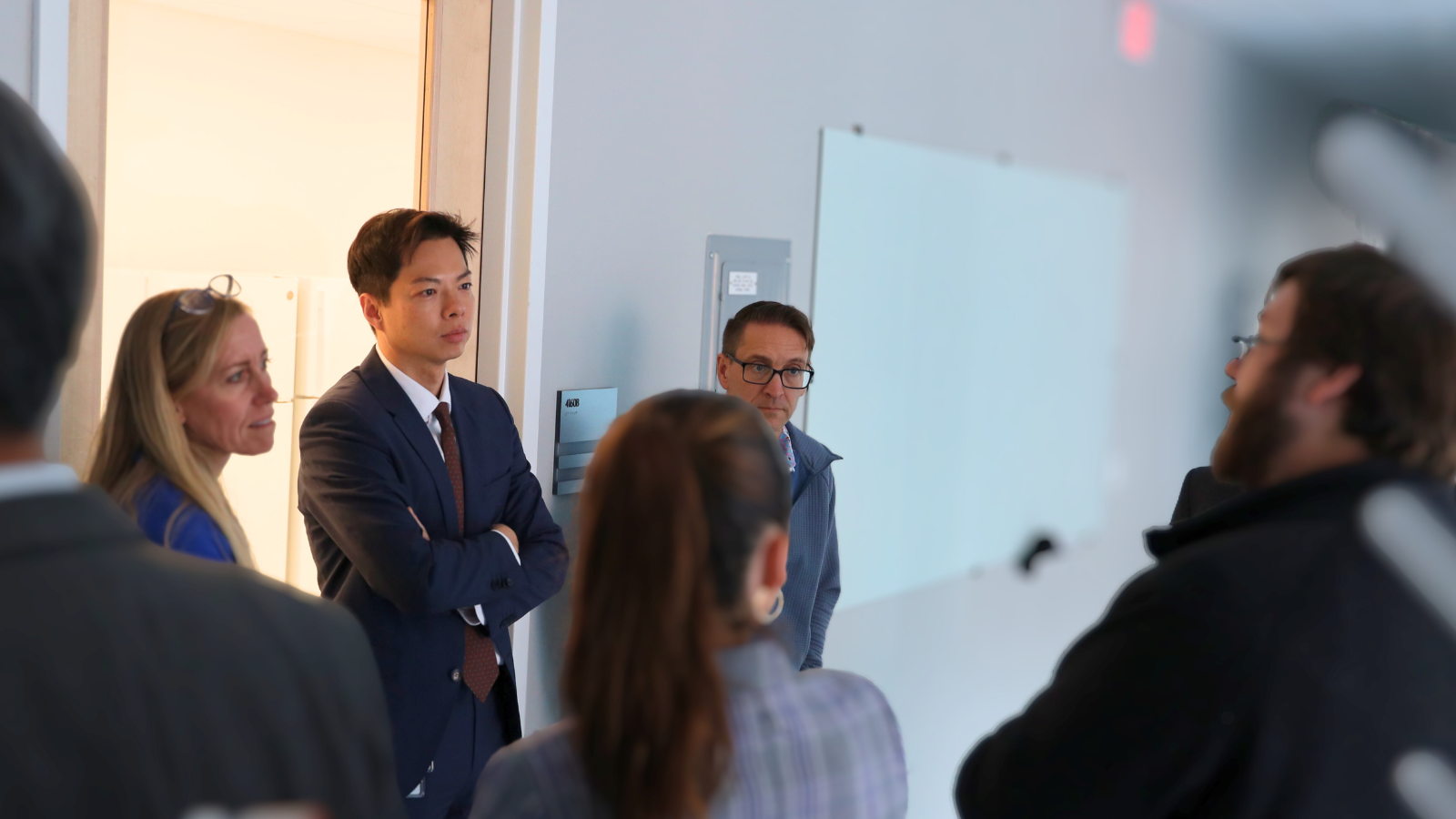News Story
Kuo Receives TERMIS-AM Education, Training, and Outreach Award

From left to right: Molly Shoichet (TERMIS-AM Past-President), Catherine K. Kuo, Cherie Stabler (TERMIS-AM President)
This summer at the Tissue Engineering and Regenerative Medicine International Society (TERMIS) World Congress held in Seattle, WA, the TERMIS Americas Chapter (TERMIS-AM) awarded bioengineering Associate Professor Catherine K. Kuo the TERMIS-AM 2024 Education, Training, and Outreach Award, for her significant contributions to education, mentorship, and public science communication in the field of tissue engineering and regenerative medicine.
With more than 3,000 members internationally, TERMIS strives to advance tissue engineering and regenerative medicine worldwide, generating knowledge with the mission of improving patient outcomes on a global scale. TERMIS is composed of three chapters: the Americas Chapter (AM), the Asia-Pacific Chapter (AP), and the Europe Chapter (EU).
“It’s an incredible honor to receive this prestigious TERMIS-AM award,” says Kuo, who currently serves as the chapter’s President-Elect. “Being recognized by colleagues and peers for doing what I love is humbling and special. It is especially meaningful to be recognized by TERMIS-AM, as this society values not only cutting-edge science and research, but also emphasizes excellence in education and outreach.”
Principal Investigator of the Developmental and Regenerative Engineering Laboratory in the Fischell Department of Bioengineering (BIOE), Kuo focuses on the mechanobiology of embryonic tendon development, with the goal of informing tendon tissue engineering and regenerative medicine strategies. Her research has produced important new understandings of tendon formation and earned her numerous prestigious recognitions including election as an AIMBE Fellow, the NSF CAREER Award, the March of Dimes Basil O’Connor Starter Scholar Research Award, and the Emerging Investigator Award from Stem Cell Research and Therapy. She is also a Fischell Fellow with the UMD Robert E. Fischell Institute for Biomedical Devices.
Looking ahead, Kuo is excited to continue building on her work in tendon tissue engineering and regenerative medicine. “Our research has established fundamental principles of how functional tendons develop,” she explained. “Moving forward, I am looking forward to leading a multidisciplinary team that translates our basic science findings into therapeutic approaches to regenerate injured tendons and cure tendon-related diseases.”
Kuo has also established herself as a leader in the field of education as well as research. She is a repeat recipient of the BIOE Faculty Instructional Impact Award (Spring 2022, Fall 2022), nominated by students in her course BIOE120: Biology for Engineers for her positive impact on their academic experience. Most recently, Kuo received the esteemed 2024 Poole and Kent Faculty Teaching Award, given annually to a Clark School of Engineering senior faculty in recognition of their significant contributions to teaching at both the undergraduate and graduate levels; for their innovative classroom techniques and classroom materials; and their ability to motivate students to learn.
“While my lab's main research goal is to create innovative solutions to help patients, my lab also holds in equally high regard the integration of science, mentorship, and education to train and inspire students as the next generation of scientists,” Kuo says. “I am grateful to mentor an exceptional team of students who continually inspire me with their curiosity, thoughtfulness, and desire to impact the world.”
Beyond the UMD campus, Kuo has held multiple leadership roles within the society and lead the AM chapter in successful outreach efforts. During her time as an elected Council Member for TERMIS-AM from 2020 to 2023, she developed and initiated the Ambassadors Program, designed to recruit and support members as active Chapter ambassadors. Ambassadors help organize society-sponsored regional meetings to promote TERM research, enhance member networking and collaborations, and attract new members to TERMIS-AM. The Ambassador Program has already supported regional events in Arizona and California, with the latter attracting more than 240 attendees from major universities and local community colleges. These regional meetings enable research groups with limited funds to attend TERMIS-AM meetings, as well as provide historically underrepresented and first-generation students their first exposure to tissue engineering and regenerative medicine research.
Published August 21, 2024









